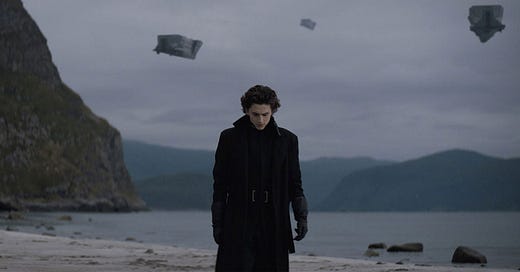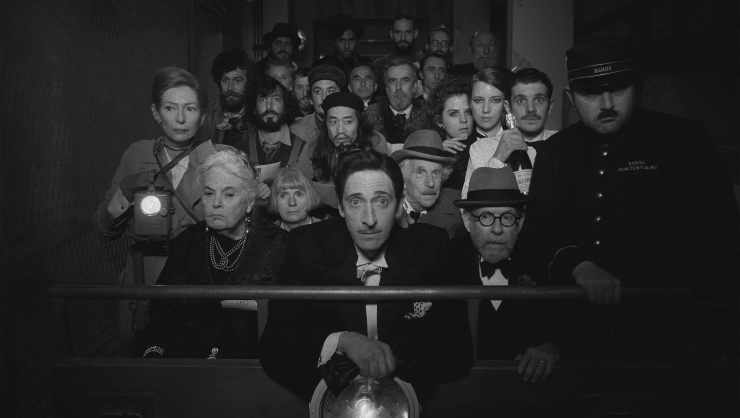The Nut Graf: “Dune,” in theaters and on HBO Max, is an old-school spectacle that demands to be experienced on a big screen. (***1/2 stars out of ****). “The French Dispatch,” in theaters, may be the worst thing Wes Anderson has ever done. (*1/2 star out of ****)
Two quick takes for the weekend.
“Dune” is a gigantic, rumbling, otherworldly epic of a movie that’s slightly less than it seems, if only because it seems so huge. Director Denis Villeneuve (“Arrival,” “Blade Runner 2049”) still has yet to locate a sense of humor, but it’s not really needed for this project, an adaptation of Frank Herbert’s classic 1965 science fiction novel – or rather, the first half of it. Ironically, the story has influenced so many movies in the decades since the book came out that it arrives here slightly threadbare, but the film’s well-acted (by everyone except Timothée Chalamet as hero Paul Atriedes, who, to be fair, spends the first half of the novel in reactive mode) and Villeneuve gets to concentrate on world-building, which he does with a tactile, visionary inventiveness. “Dune” is a Warner Bros. movie, which means it’s also available on streaming service HBO Max, but if you feel comfortable doing so and take the necessary precautions, a theater is really the only place to drink in Villeneuve’s visuals and feel Hans Zimmer’s musique concrète score galumphing down your spine. The movie isn’t “Lawrence of Arabia in Space,” but it comes pretty close, and I say that as someone who went in a doubter. (Approached in a spirit of camp indulgence, David Lynch’s 1984 “Dune” has its amusements, and “Jodorowsky’s Dune” is a marvelously unhinged documentary about what may be the most influential sci-fi movie never made.)
Wes Anderson has followed three of the best movies of his career (“Moonrise Kingdom,” 2012; “The Grand Budapest Hotel,” 2014; “Isle of Dogs,” 2018) with “The French Dispatch,” inarguably his worst. An omnibus film, it surrounds three short tales with several comic vignettes, and the conceit is that we’re “reading” a copy of the title magazine, a sort of “New Yorker” by way of France by way of Kansas (don’t ask). The first story, about a madman (Benicio del Toro) who becomes an acclaimed painter, is precious but watchable, and Tilda Swinton’s teeth are the funniest thing in the movie. The second, about a student uprising starring Timothée Chalamet (again) and a dowdied-down Frances McDormand, is incomprehensible. The third casts Mathieu Almaric as a doting father of a kidnapped child and Jeffrey Wright in a plangent riff on James Baldwin; it’s sweet but fatally cluttered. Even for a Wes Anderson movie, every frame of “The French Dispatch” feels oppressively coffee-table ready – a wryly anal-retentive labor of love hermetically sealed and disconnected from any larger sense of purpose. The sensory overload becomes exhausting, and then irritating, and then just dull – it’s a movie to be endured rather than watched. Only occasionally are there flickers of the melancholy, the inconsolable sense of loss, that permeate “Moonrise” and “Grand Budapest” and allow them to expand emotionally beyond their maker’s fussiness. Those movies were critical and commercial hits, which seems to have caused the director to double down on his house style until someone cries uncle, and that someone is us. Success may be great for Wes Anderson, but apparently it’s hell on his work.
If you enjoyed this edition of Ty Burr’s Watch List, please feel free to share it with friends.
If you’re not a paying subscriber and would like to sign up for additional reviews and to join the discussions, here’s how:
If you’re already a paying subscriber, I thank you for your support.





